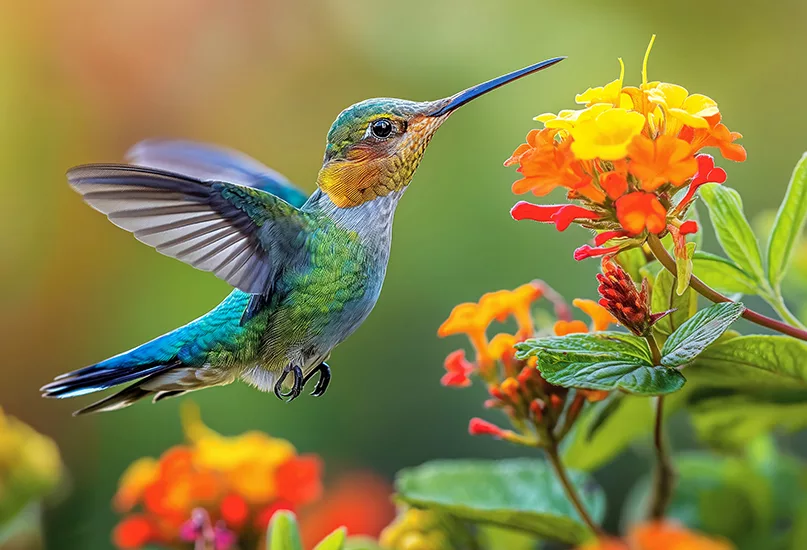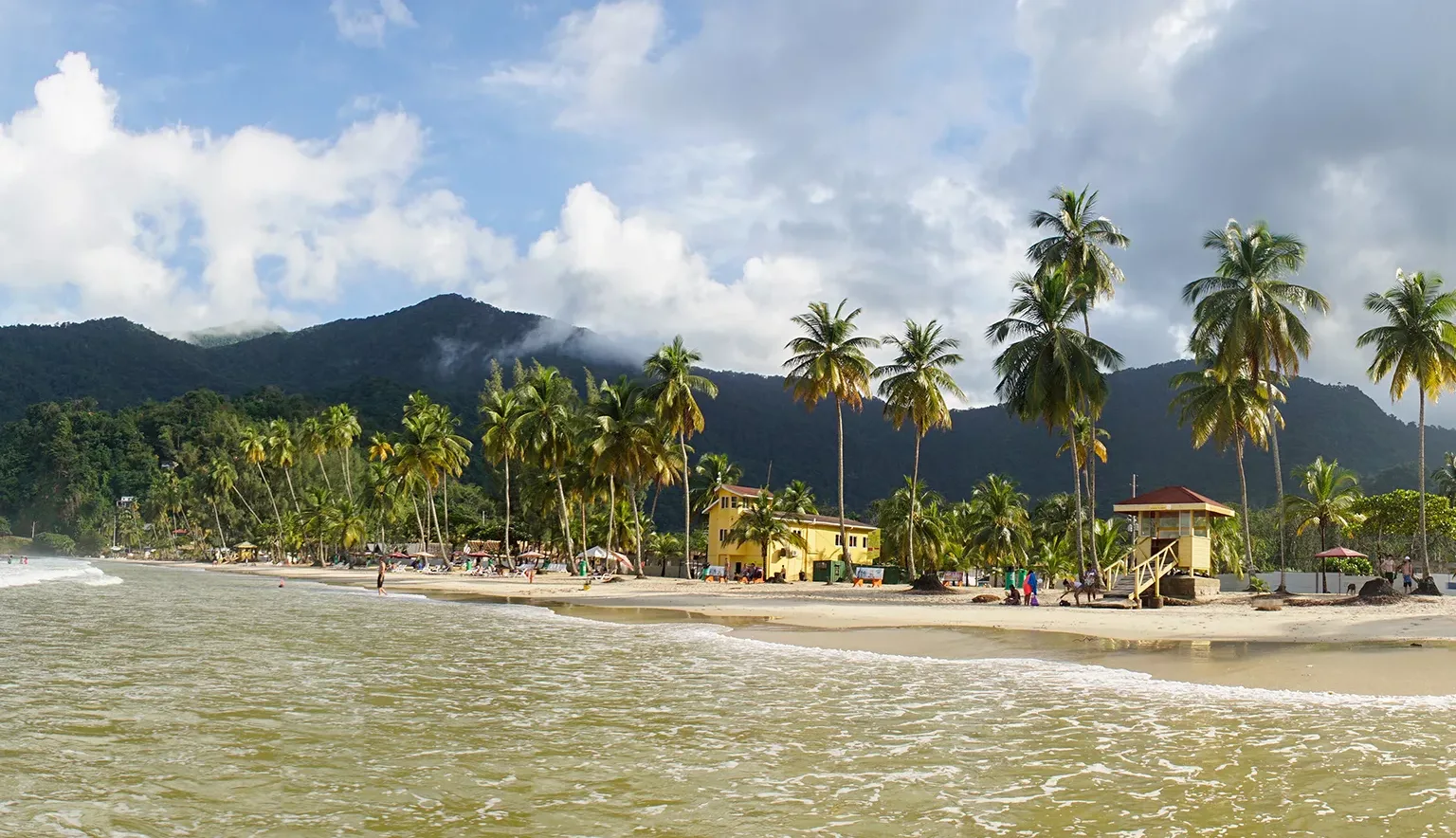Responsible travel and sustainability are crucial to the future of tourism in Trinidad according to the Chairman of Tourism Trinidad, Cliff Hamilton.
Q&A WITH TOURISM TRINIDAD
In what ways has Tourism Trinidad developed and marketed Trinidad’s tourism offerings in the last couple of years?
Cliff Hamilton, Chairman (CH): Tourism Trinidad has taken significant steps in creating, building, and promoting authentic festivals and special events that reflect the vibrant culture and diversity of our island. Over the past few years, we have focused on positioning Trinidad as the go-to destination for unique and immersive festival experiences.
Our efforts have centred around authentic events that showcase Trinidad’s unmatched creativity and heritage. This includes our support of the World Steelpan Festival, which was launched by our parent ministry, the Ministry of Tourism, Culture and the Arts, and celebrates the island’s iconic steelpan music, an art form that originated here and continues to inspire musicians globally. The festival not only highlights Trinidad’s musical ingenuity, but also draws international performers and pan lovers.
We’ve placed strong emphasis on our festive season festivals, designed to capture the spirit of our diverse communities from Divali to Christmas, as these two holidays are in fact the festivals of light. Tourism Trinidad has and will continue to partner with community groups to create and promote events around this theme that bring together traditional customs, local artisans, and culinary experiences, giving visitors a deeper understanding of the warmth and generosity that define Trinidadian culture during our festive season.
The culinary delights of the island’s rich and diverse food culture reflect our multicultural influences, from street food to fine dining. Visitors are invited to experience the flavours of Trinidad in our famous doubles, bake and shark and other fusion dishes, cementing our reputation as a culinary hotspot in the region.
Through these planned festivals, we are able to highlight the authenticity and creativity that make the island so unique. As a result, we’ve seen a growing international interest in our festivals, and we will continue to evolve and expand these offerings to maintain Trinidad’s position as a premier cultural destination.

What new travel and tourism trends have emerged in Trinidad in that time?
CH: In recent years, one of the most exciting trends in Trinidad’s tourism sector has been the rise of community-based tourism. This shift reflects a growing demand among travellers for authentic, immersive experiences that allow them to connect with local cultures on a deeper level. Visitors today are seeking more than just traditional sightseeing — they want to engage directly with the communities they visit, and Trinidad has been perfectly positioned to cater to this trend.
Community-based tourism across the island has flourished as travellers increasingly desire to explore off-the-beaten-path destinations and interact with locals in meaningful ways. This has been seen in the uptake of bookings for accommodation and tour experiences in smaller villages as compared to the city. Visitors enjoy interacting and learning about our unique way of life from the very people who live it.
Additionally, eco-tourism has blended seamlessly with community-based tourism, with initiatives in rural areas like Brasso Seco, Grande Riviere, and Paramin, where visitors can explore rainforests, learn about sustainable farming practices, and participate in events and activities that are coined within these smaller communities. Festivals, village tours, and traditional craft workshops led by local artisans provide authentic encounters that honour our history and diverse cultural make-up. These experiences are not just about appreciating nature but also about supporting and empowering the communities that protect and conserve these natural treasures.
Overall, this move towards community-based tourism is transforming Trinidad’s travel landscape. It’s been incredibly rewarding to see how this form of tourism not only brings visitors closer to our people and culture, but also creates economic opportunities for local communities, promoting sustainability and enriching the overall visitor experience.
Has Tourism Trinidad continued to create a strong and consistent brand image for the island to increase recognition and visitation?
CH: At Tourism Trinidad, we have been developing a strong, cohesive brand that reflects the dynamic and diverse offerings of the island. Through the #VisitTrinidad marketing brand and our ‘Always in Season’ signature slogan, we have created a consistent image that speaks to both the local and international market.
The #VisitTrinidad brand has been designed to capture the essence of what makes Trinidad unique. It highlights the island as a destination filled with adventure, rich culture, vibrant festivals, and breathtaking natural beauty. The hashtag itself has become a powerful digital tool, helping to create a community of travellers, influencers, and locals who share their authentic experiences of the island online.
Our slogan, ‘Always in Season,’ has been a cornerstone of our branding efforts. This slogan communicates that Trinidad is a year-round destination, where visitors can experience something new and exciting every time they come. It’s an invitation to explore the island’s ever-changing landscape of activities and experiences. To further reinforce this brand, we’ve aligned our marketing initiatives to the ‘Always in Season’ message, ensuring consistency across every communication channel. This unified approach has helped us stand out in a competitive market and has boosted destination recognition.
We’ve also expanded our partnerships with global media outlets, travel influencers, and tourism networks to increase visibility for the #VisitTrinidad brand. By leveraging these partnerships, we’ve been able to showcase the island’s unique attractions by hosting various media familiarisation trips with journalists and travel planners, who then share their experiences with a wider global audience.
Additionally, we’ve also been developing sports tourism that has become a major draw for international visitors. In particular, cricket holds a special place in the hearts of both locals and fans worldwide. Hosting international cricket matches, from Test series to T20 tournaments, at world-class venues like the Brian Lara Cricket Academy has enhanced our visibility on the global sporting stage. These events not only attract cricket enthusiasts but also create opportunities for travellers to explore our culture, food, and other attractions.
By continuing to strengthen our cultural and sports tourism offerings and aligning them with a consistent and appealing brand identity, Tourism Trinidad ensures that visitors are aware of everything the island has to offer. Moving forward, we’ll continue to evolve the brand while promoting Trinidad as a place of endless possibilities and unforgettable experiences.

What makes 2024 the year to visit Trinidad?
CH: 2024 is shaping up to be an unforgettable year for Trinidad, particularly as we celebrate the global recognition of the steelpan—our national instrument and a symbol of Trinidadian creativity and innovation. This year marks significant milestones in the steelpan’s journey, making it the perfect time for visitors to immerse themselves in the rich culture and festivities surrounding this uniquely Trinidadian art form.
One of the most anticipated events for the year was the World Steelpan Festival, a grand celebration that brought together the finest steelpan enthusiasts from across the globe and the most amazing steel bands from Trinidad to perform in a spectacular showcase of talent. This festival not only highlighted the incredible musical diversity within the steelpan world, but also offered visitors a chance to experience the instrument’s powerful cultural resonance firsthand. From live performances to workshops and exhibitions, the steelpan did in fact take centre stage, reflecting its enduring influence on global music.
2024 is also significant because the steelpan has been gaining global recognition as a UNESCO Intangible Cultural Heritage, further solidifying its place on the world stage. This recognition underscores the steelpan’s importance not only to Trinidad and Tobago but to global culture, making it a momentous time to visit the birthplace of this revolutionary instrument.
Beyond the steelpan, visitors in 2024 can enjoy the island’s year-round events and festivals, from our renowned culinary experiences to the festive season celebrations. But it is the celebration of the steelpan—its music, history, and its future—that truly sets this year apart.
What is your personal favourite landmark or attraction in Trinidad?
CH: My personal favourite attraction in Trinidad is the Caroni Bird Sanctuary. It’s a place where nature’s beauty and serenity come together in the most peaceful and relaxing way. Nestled in the Caroni Swamp, this sanctuary is not just a haven for wildlife, but also one of Trinidad’s most iconic eco-tourism destinations.
What makes the Caroni Bird Sanctuary so special is the chance to witness the Scarlet Ibis, our national bird, in its natural habitat. There’s nothing quite like the experience of sailing silently through the mangrove waterways, surrounded by lush greenery and the calls of countless birds. The real magic happens at dusk, when thousands of Scarlet Ibis return to roost. Seeing these brilliant red birds fill the sky as they come home for the evening is a unique and authentic experience and one of those moments that stay with you long after you leave.
Whether you’re a birdwatcher, a nature enthusiast, or simply someone who wants to experience the more tranquil side of Trinidad, the Caroni Bird Sanctuary is a must-visit.
Is responsible travel and sustainability still the future of tourism on the island?
CH: According to UN Tourism, the tourism sector must be fully aware of “its current and future economic, social, and environmental impacts, addressing the needs of visitors, the industry, the environment, and host communities.” It is crucial that destinations adopt and implement policies, practices, and initiatives that align with responsible and sustainable travel. This ensures positive impacts are achieved while minimising the potential negative effects of tourism.
Tourism Trinidad is no different. We actively encourage and support stakeholder activities and projects that prioritise sustainable tourism practices and responsible travel. With increasing threats to our environmental resources, sociocultural authenticity, and the longevity of economic operations, we are taking a more purposeful, strategic, and targeted approach to responsible tourism on the island. As facilitators of destination development, we are fully committed to ongoing work in this critical area.
Several stakeholders have already stepped forward to lead the way in engaging in sustainable practices. For instance, the Caribbean Natural Resources Institute (CANARI) plays a pivotal role in supporting the UN Sustainable Development Goals (SDGs) through its sustainable development programmes. Another notable example is HADCO Experiences, which manages key eco-tourism sites such as the Asa Wright Nature Centre and Mt. Plaisir Estate Hotel. Both are deeply committed to environmental conservation and promoting sustainable tourism.
These efforts reflect our collective responsibility to ensure that tourism development in Trinidad protects our natural environment, preserves cultural heritage, and sustains local economies for generations to come. We remain focused on making responsible travel the cornerstone of our tourism industry’s future.
How do you see the Trinidad tourism industry developing in the rest of 2024 and beyond?
CH: As we look towards the future, the continued development of the island’s tourism industry will be driven by our focus on expanding our festivals and special event offerings, alongside the growth of sports tourism and meetings, incentives, conferences, and exhibitions (MICE).
One of our core strategies is to build on Trinidad’s reputation as a cultural powerhouse by creating and promoting even more authentic festivals and event experiences that capture the energy and diversity of the island. Beyond our signature events like the World Steelpan Festival, we are developing new festivals that showcase the best of Trinidad in areas like fashion, culinary arts, and music. These events will not only highlight the local talent but also attract international participation, further boosting visitor arrivals.
We also see great potential in sports tourism. Trinidad has a rich sporting history, particularly in cricket, football, and athletics. In the coming years, we hope to host more international sporting events and tournaments. These events will attract athletes, teams, and spectators from all over the world, providing a significant boost to our tourism sector.
In parallel, MICE tourism will play a crucial role in the industry’s development. The island is becoming an increasingly attractive destination for business tourism, thanks to our strategic location, modern facilities, and diverse cultural offerings. We are committed to enhancing our MICE offerings by upgrading conference centres, hotels, and event spaces to meet the needs of international business travellers. Our goal is to position Trinidad as the preferred hub for regional and international conferences, exhibitions, and incentive trips.
The future of Trinidad’s tourism industry is bright. By continuing to innovate and invest in our festivals, sports tourism, and MICE offerings, we are confident that we will attract a new wave of visitors who are looking for more than just a vacation—they’re seeking an authentic, immersive experience that only Trinidad can provide.































